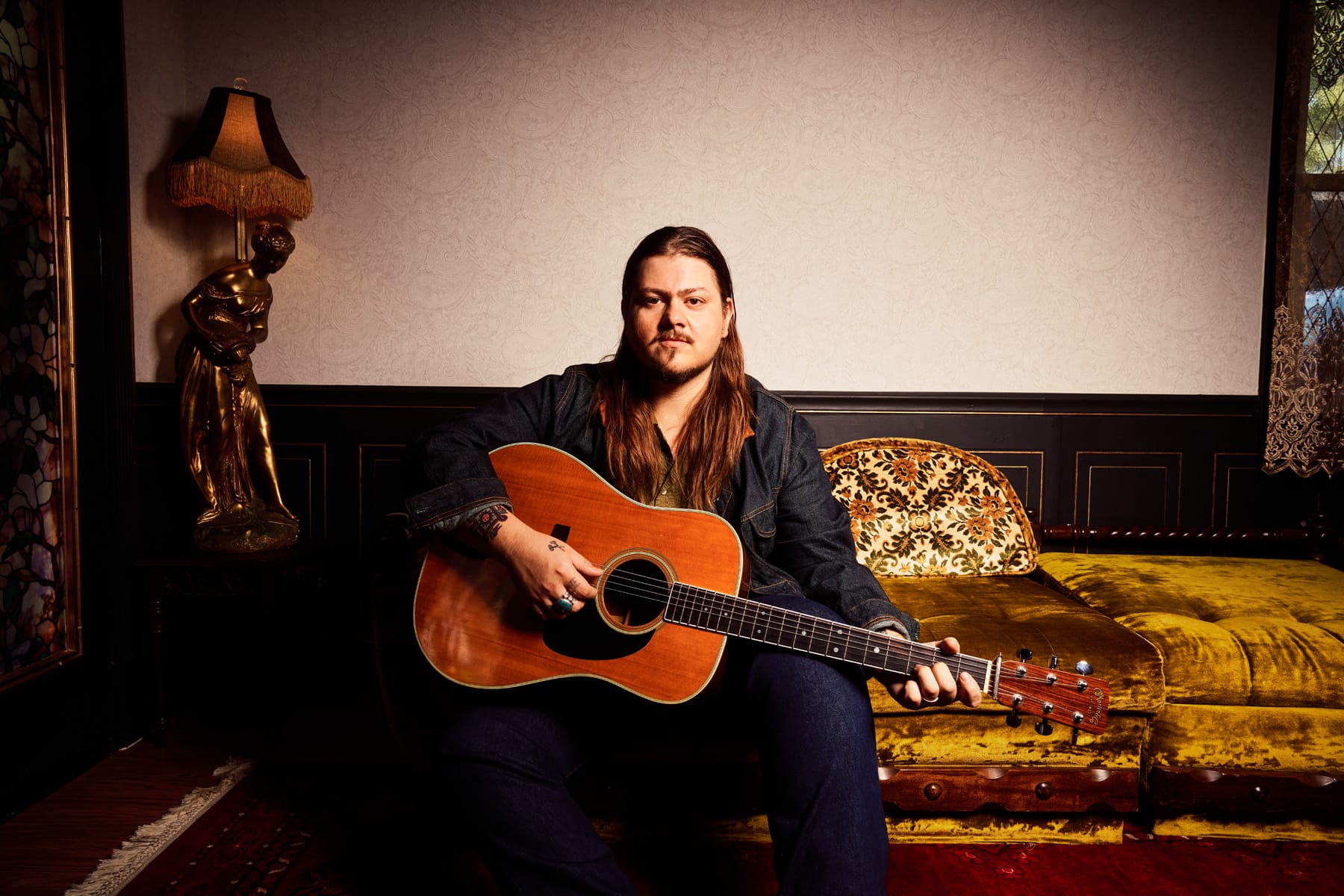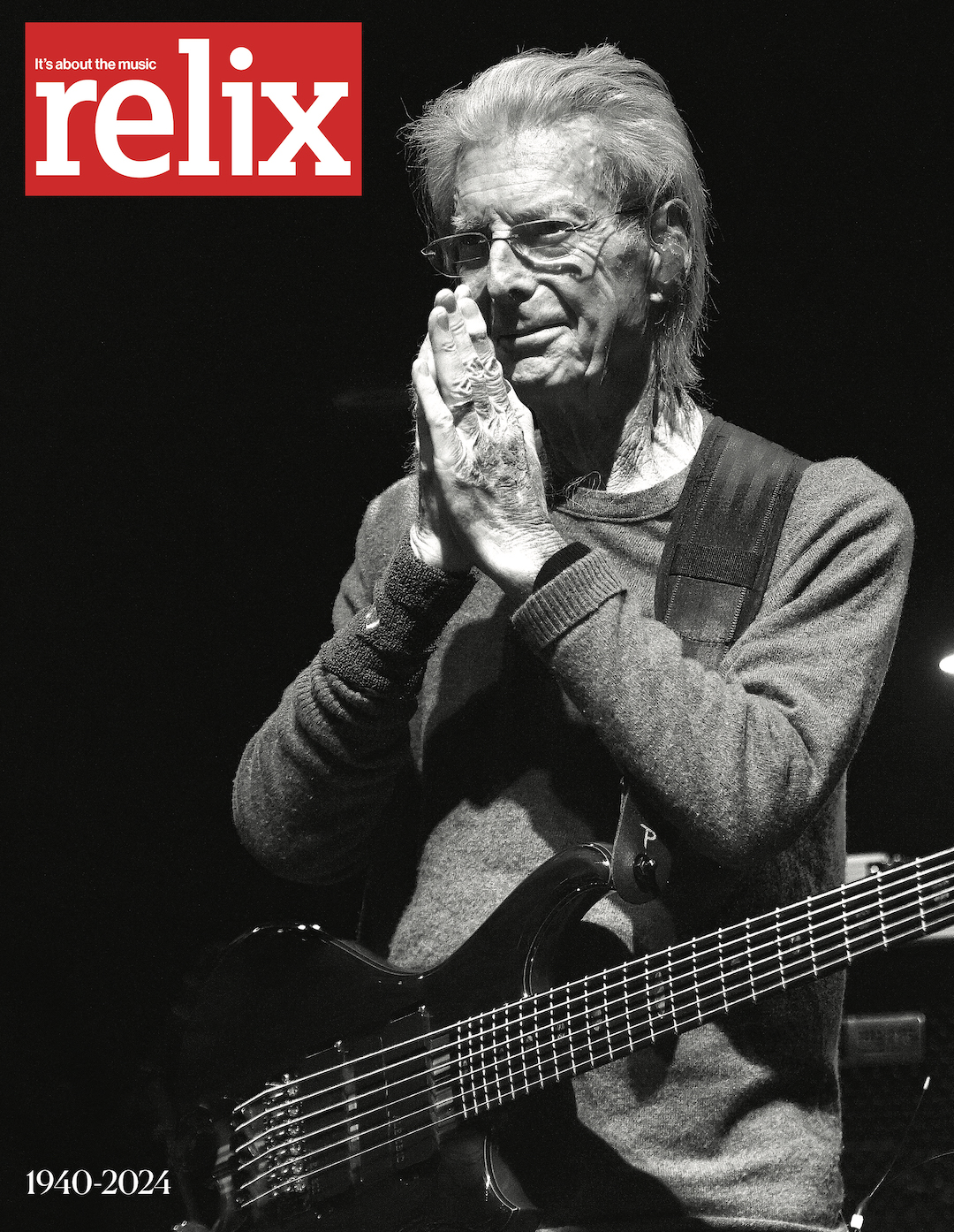Spotlight: Vincent Neil Emerson

If it’s 3 a.m., and Vincent Neil Emerson is sitting at his workbench in the garage, chain-smoking and strumming his guitar, then things are just fine. “That’s when I do my best writing,” Emerson says. To be sure, after crafting three albums over the last four years, the singer-songwriter and guitarist from East Texas has been working hard in that garage.
Emerson’s latest release, The Golden Crystal Kingdom, arrived in November of 2023. Produced by Shooter Jennings, the dozen-song collection expands Emerson’s country leanings into the terrain of ‘70s rock, marking his affinity for Neil Young and the late Tom Petty. The LP also places Emerson squarely in an elite peer group that includes vanguards of contemporary outlaw country and Americana like his buddies Charley Crockett and Colter Wall, and mainstream breakthrough artists such as Tyler Childers and Sturgill Simpson. Though, humbly, Emerson qualifies his place in that lineup.
“I’m not anywhere near where those guys are, in terms of fame,” Emerson says. “But, we all have the same goal, and that is to try and make good music. We like the good stuff.”
Emerson first crossed paths with Crockett while cutting his teeth on the Dallas-Fort Worth club scene. Crockett encouraged Emerson, building the young troubadour’s confidence, and the two became friends. Crockett covered Emerson’s song “7 Come 11” on his 2019 album, The Valley. Emerson returned the favor on The Golden Crystal Kingdom, decking the record with a rendition of Crockett’s “Time of the Cottonwood Trees.”
Crockett isn’t the only one recognizing the young Texan’s emerging talent. After scoring a successful debut with 2019’s Fried Chicken and Evil Women, Emerson recruited country-music icon Rodney Crowell to produce his self-titled sophomore release. The album quickly caught Jennings’ ear. And as Emerson’s label, La Honda Records, merged with RCA, Jennings signed on to produce Emerson’s third effort.
They recorded the set at Steakhouse Studios in Burbank, Calif., with Jennings handpicking an ensemble of seasoned pros as his backing band. During their downtime, Emerson took drives through Laurel Canyon, absorbing the spiritual echoes of the historic enclave once home to Young and his Crosby, Stills & Nash cohorts. He also bunked in Jennings’ basement—lovingly decorated in a He-Man motif—and, through his window, watched as cars crowded the labyrinthine LA highway below the hillside home. Inspired, he wrote the album’s lead song, “Time of the Rambler,” and tracked it immediately the next day.
“Rodney taught me a lot about songwriting—a lot about the studio—and so did Shooter,” Emerson says. “More than anything, with Shooter, I feel like I made a really good friend. I think we come from similar places, artistically.”
Emerson started writing songs at a young age, knocking out his first with the help of a Mel Bay chord book and a beat[1]up guitar—tarnished in green house paint—gifted to him by one of his older sister’s friends. As a teen raised by a single mother after his father’s tragic passing, he battled bouts of depression. “I grew up really poor. I couldn’t imagine being able to afford therapy,” Emerson says. “Thank God I found songwriting. I started to figure out ways to get things off my chest when there was no one to talk to.”
Emerson’s often-stark sonic portraits evoke his emotional connections to the Southwest, some nodding to his indigenous ancestry, and one of his tunes has been featured during each of the three seasons of FX’s Reservation Dogs. He’s also developed a willingness to take a stand, however potentially divisive. When the horrific Uvalde, Texas, school shootings transpired in May of 2022, Emerson wrote “The Man From Uvalde,” and he included it on The Golden Crystal Kingdom. As an East Texan advocating for gun law reform, he anticipated the brushback.
“I’m a father myself. I see on the news, ‘19 children lost their lives.’ That’s the only song on the record where I worried about how people were going to take it,” Emerson says. “The way the song came together, and how strongly I felt about it, I don’t think there was any way we could’ve made this record without that song.”
Emerson’s choice to place the vocal forefront in the mix, accentuating his trail-dusted tone, and his precocious command of storytelling were equally effective in conveying his message. “That was one thing I was pretty adamant about,” he says. “I didn’t want the vocal to be buried.”
Emerson and The Red Horse Band will support the album with live dates, but he admits his impatience often gets the better of him. He’s already written new material that he’s anxious to play live. With The Golden Crystal Kingdom, Emerson says that he’s scratched his rock-and-roll itch and seems to have avoided being typecast as strictly a country artist.
“I’m not thinking about songs in terms of genre anymore. Now I can do whatever I want,” Emerson says. “The next one will be a mixture of things—a little honky-tonk here, a little rock-and-roll there, a little blues and some of the sad bastard stuff—everything I like about music.”




















